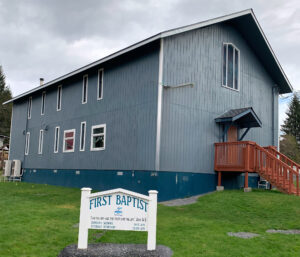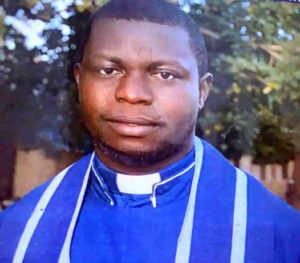
RICHMOND, Va. (BP)–“What would Jesus do?” is a catchy slogan among Christian teens these days. But many young people seem to be asking a deeper question: “What would Jesus have me be?”
Their search for an answer is leading them to spend a lot of time on their knees and in the Scriptures. They’re discovering mission involvement is no add-on to God’s cosmic to-do list.
“We are created for God’s glory, and the reason we have missions is because there are places that aren’t glorifying God,” says David Warren Rush, 22, a student at Oklahoma Baptist University who actively mobilizes other students and youth for missions. “I’ve always been a person who asks, ‘What is my purpose? Why am I here?’
“Those questions are answered in Scripture: The Bible’s theme is all about glorifying God. When people see that, they go, ‘Oh! That’s what it’s all about!'”
What excites today’s young people is not a “program” but loving and praising God — and lifting his name among the nations, observes Mike Lopez, who directs the International Mission Board’s student section.
“That’s what speaks to this generation,” Lopez says. “When they see what God is doing, and how his Word from Genesis to Revelation has a thread woven through of God’s vision for his people worshiping him and proclaiming that vision to the world, they see missions is not an option. It’s God saying, ‘This is my plan and direction for all time and eternity.’
“Then missions becomes more than a trip. A mission trip has a beginning and an end. What you need is a missions lifestyle.”
That doesn’t mean volunteer mission experiences aren’t important. In fact, they’re more strategic than ever.
Today’s 70 million-plus Americans born after 1976 — often called the “Millennium Generation” — share many characteristics with their immediate predecessors, the 44.6 million Generation Xers born from 1965-76. One is a preference for learning by doing, seeing, tasting, touching.
“You need to experience it firsthand,” explains Rebekah Duke, who taught English in Jordan with Acteen Activators last year. “I have to do stuff with my hands. For kids who just sit there and listen to missionaries, I think sometimes it gets them turned off. But if you say, ‘Hey, we’re going to Atlanta to work with some kids and teach them about God,’ they’re like, ‘Cool! Not only do I get away from my parents for a week, but I can go and be a part of it.'”
Southern Baptist mission boards and agencies are now trying to challenge every Southern Baptist young person to spend at least one summer or semester on a U.S. or international mission field before college graduation.
It’s a big group — more than 600,000 Southern Baptist college students and more than a million teens in churches. The mission boards can’t contact — much less mobilize — them all, says Bron Holcomb, youth consultant in the IMB volunteer department. But they can help mobilize two strategic groups: the approximately 1,500 Southern Baptist campus ministers and the 15,000 or so Southern Baptist youth ministers around the country.
One way to excite and mobilize these key leaders: Invite them on “Discovery Tours” to see needs and opportunities with their own eyes, pray about them on-site and strategize with missionaries about ways to involve students and youth, Holcomb says. Student ministers and state student directors already have participated in “Discovery Tours” in Europe, Asia, South America, the Middle East and North Africa.
The potential number of young volunteers on the horizon is overwhelming, Lopez admits. For example, 200,000 teens are expected to attend Youthlink, a mammoth seven-city Southern Baptist youth teleconference planned for New Year’s Eve 1999. All of them will be challenged to participate in a mission project.
What if one in 10 responds on the spot? That’s 20,000 youth volunteers ready to serve beginning in the year 2000. Ten years from now, some of them will be heading back to the field as career missionaries.
“When you talk about youth overseas, a lot of people say, ‘Well, this is more trouble than it’s worth,'” Lopez acknowledges. “Yeah, it’s some trouble.
“But these are going to be our missionaries in a few years. How much trouble is it worth to get them acquainted with missions and give them a heart for your people? That’s called growing your own mission force. If we don’t make that investment, then there won’t be any missionaries in the future.
“You’d better believe that any way they are used on the field now, it’s going to stick with them for life.”
And that’s how long God wants them on mission — for life.













